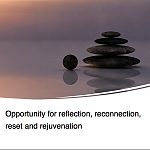Hello and Welcome to our October Blog with a focus on Wellbeing and the Menopause
My name is Helen Gormley of Helen Gormley Wellbeing and I wanted to share both a personal and professional perspective on the menopause. Personally, I have found it a time of growth and stepping into my authentic self.
Personally, I was experiencing grief and menopause at the same time, it was not that easy to differentiate what was what? And that’s OK. For me, finding the opportunity to share with other friends and new friends was so refreshing and supportive. Hence a major part of my integrated approach to wellbeing is to move the conversation from I to We to Us, creating psychologically safe spaces to facilitate a community approach to our wellbeing. I believe it is very important to share what is going on, to meet people where they are at, and take positive action.
With the menopause, there can be physical, emotional, and psychological symptoms which might include insomnia, night sweats, and emotional imbalance. This can then feel a time of stress, anxiety, overwhelm and generally feeling distracted and let’s remember everyone experiences it all so differently.
Being connected to our body is one thing that has had a positive impact on me and my clients. Our body and indeed physical activity opens up the opportunity for an embodied approach to our wellbeing at any age.
Some key things to explore are:
- Body awareness - to bring reconnection, nourishing to enable success, flourishing, and flow.
- Somatic practice - rewiring our response to stress and how our body may function internally and externally.
- Eudaimonic wellbeing - our body can provide us with a route to happiness in our life now and beyond. To create space to meet ourselves and each other.
- Resilience - our body presents a system of physiological resilience providing the opportunity and space of integration of the subjective (mind - thoughts, feelings, desires) and objective (our body in space both internally and externally).
By taking a more integrated approach to our wellbeing, this can create the space to see the choices we have available and the changes we would like to make. Some key themes, that are part of my positive psychological approach to wellbeing, are further developed from the PERMAH framework (Martin Seligman 2012), are as follows:
- positive emotions: with the knowledge that all emotions are data and how we might incorporate positive emotional nudges this could be something new and also reconnecting with things we have loved and brought us joy in the past.
- engagement: we might want to reconnect with our strengths and values and how we can use them daily to become happier, thrive, and create a flow state.
- relationships: with ourselves moving from perhaps one of inner critic to inner coach. From this place moving to explore our relationship with friends and family and connecting with new friends and communities.
- meaning: it may be a time to explore changes we would like to make relating to our purpose and career. An opportunity to reimagine things differently. Creating a greater sense of belonging and new beginnings.
- accomplishment: for me to share my vulnerability I was very compassionate towards others but turning that towards myself was quite alien and something I am learning to do. At this time we really do need to show ourselves self-compassion. Adopting a growth mindset will also support us to move forward, to give things a go, and seeing mistakes as all part of the learning.
- health: here we can focus on sleep, eating, movement and restoration.
- space: this for me is so very important! To be present now. Creating space to breathe, grow and have honest conversations is what is important for me and my clients. Many of my clients feel there is always this urge to do more but what if doing less! To be with what is here now sounds like a great plan to me.
- A passion of mine is positive ageing and moving into our space and owning this to become more visible.
In summary, as I have already mentioned I like to incorporate learning into my wellbeing approach, to gain the confidence to try new things to learn, grow and try again. Together as a community, I believe we can thrive. I do also bring in various wellbeing tools to support my clients which might also include: mindfulness, energy psychology, cognitive behavioural hypnotherapy, yoga therapy, somatic movement, and coaching psychology.
Let’s also remember that starting small makes lasting change easy and gives us hope here’s a quote that encapsulates so much for me.
‘In order to design successful habits and change your behaviors, you should do three things. Stop judging yourself. Take your aspirations and break them down into tiny behaviors. Embrace mistakes as discoveries and use them to move forward.’
B.J. Fogg, Tiny Habits: The Small Changes That Change Everything
One of my goals is to support women to transition through the menopause in a calm and empowering way to see the choices available and to feel supported and thrive together. Whilst also bringing lightness, fun, and openness to ultimately gain that greater sense of flow, thriving, and resilience. Your tribe Your Way!
Happy October




